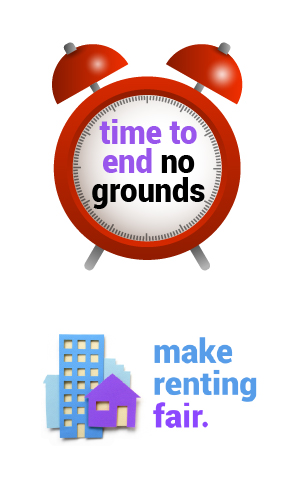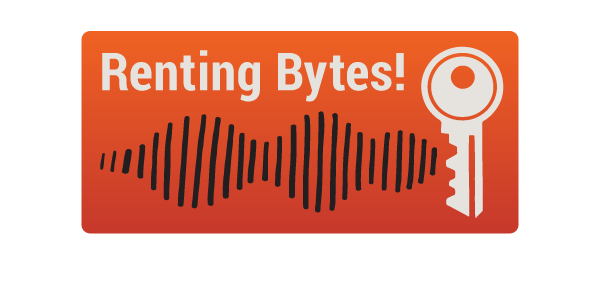A long, winding road: NSW boarding house reform
Jemima Mowbray • 21/05/2021
This piece was originally published in Parity, Australia's national homelessness publication.
On the first of July back in 2013 the NSW Boarding Houses Act 2012 commenced in full. Our Tenants' Union blog - named The Brown Couch at the time - announced: ‘New rights for boarding house occupants in NSW’. This was a win, and a long time coming. The Tenants’ Union had been involved in campaigning for boarding house reform since the mid-1970s.
Through the 1990s and 2000s there were a number of stops and starts, with opportunities to push through reform emerging, then stalling in a cycle that seemed hard to break out of. In the mid-2000s the NSW Tenants’ Union made a strategic decision to shift from an advocacy approach prioritising a ‘prescriptive rights’ regime to one that put forward an ‘occupancy principles’ model of regulation of boarding houses as a starting point on the path towards a more comprehensive regulatory regime.
Occupancy Principles are much less prescriptive and more modest than the rights secured under residential tenancy agreements, and allow for much more variation. The Tenants’ Union’s thinking at the time was that allowing variation was not only strategic, but important. Occupancy agreements, while based on a consistent set of rights-based principles, would allow for a very broad range of rental housing arrangements that fell outside of existing tenancy law to be accommodated.
The Tenants’ Union continued through this period to first build, then work with a broad coalition of housing advocacy organisations to get boarding house reform on the agenda again. In 2010, a series of tragic deaths in one of the state’s inner west boarding houses – 6 in just over a year - brought the need for stronger regulation of the sector very clearly into focus. The NSW State Coroner’s report into the deaths sharply criticised the very poor conditions and management of the boarding house, and found these had contributed to the six deaths. The Coroner called for an overhaul of the sector and its regulation. The spotlight thrown onto the sector as a result of the deaths and subsequent Coronial Inquest prompted the NSW government, in May 2012, to promise – and eventually deliver - a new package of reforms to protect boarding house residents.
‘New rights for Boarding House residents’: What did the 2012 Act deliver?
The Boarding Houses Act 2012 represented a major reform to the sector, and delivered coverage for some renters – residents of registrable boarding houses – who had never previously had coverage. But while this was a win, it was a very limited one.
The Act applies only to certain types of boarding premises. To be covered, the premises must meet the following criteria. It must provide its’ residents with their principal place of residence; and have beds for five or more residents (not counting the proprietor, manager or any relatives of proprietor or manager if they also reside at the premises).
Many renters are still not covered by the Act, or any other NSW renting laws. Often referred to as ‘marginal renters’, they include residents of smaller boarding houses, lodgers in private houses, people without written agreements in share houses, residential colleges, refuges and crisis accommodation. Many of these renters experience a range of very challenging life circumstances, and find it extremely difficult to find and keep housing. Their exclusion from tenancy legislation makes their housing even more vulnerable.
In many ways, even the residents of registrable boarding houses who gained protections under the new Act, are still not able to usefully access the rights set out in the Act’s Occupancy Principles. Firstly because of the limited nature of the rights provided under the occupancy agreements. Secondly because of the barriers boarding house residents face in asserting their rights. Barriers include the inadequate resourcing of support services and the inaccessibility of the Tribunal, but perhaps most significantly the residents’ lack of bargaining power. If you have little to no chance of locking in alternative accommodation, how can you push for repairs, or push back against unreasonable inspections by an operator when the operator – in practice, if not in principle – can just evict you in response?
A chance for further change: the statutory review of the NSW Boarding Houses Act
In 2019, six years on from implementation, the NSW Government began its statutory review of the Boarding Houses Act. In the lead up to the statutory review the Tenants’ Union published a report assessing the Act ‘on its own merits’ focusing on the experience of residents of general registrable boarding houses. The report recommended significantly strengthening the protections it provides residents, especially in relation to eviction and occupancy fee increases, and enabling local government to play more of a role in enforcement and compliance for the Boarding House sector.
The Tenants’ Union of NSW’s formal submission to the statutory review went into greater detail, and was more ambitious. We identified the language of ‘boarding and lodging’ was no longer appropriate for the sector, and highlighted the term ‘boarding house’ or ‘boarder’ was also confusingly now being used to reference a very broad range of rental arrangements without this necessarily implying coverage under the Act. These include for example arrangements found in: registrable general boarding houses; registrable assisted boarding houses; traditional boarding houses; new-generation boarding houses; student accommodation; ‘co-living’ arrangements; refuges and crisis accommodation; and informal boarding houses and lodgings.
We recommended a shift not only to the language used to describe arrangements, but that the Act itself needed to provide consumer protections for all people renting their home who don’t currently have coverage under other existing tenancy law (e.g. arrangements already covered by the Residential Tenancies Act 2010).
For most people in these arrangements, this is their permanent and principal place of residence. The idea that boarding house arrangements are only ‘temporary’ is simply untrue, and can’t continue to be used as an excuse for poor regulation. As we wrote in our 2019 submission:
“There is no sound policy reason to further boarding houses, or lodgings, as forms of tertiary homelessness. We do not accept principles espoused by industry such as ‘easy in, easy out’, to refer to a trade-off where easier access to accommodation is granted in exchange for arbitrary evictions, as useful from a 21st century regulatory perspective.”
What emerged? NSW Government’s Proposal for a Shared Accommodation Act
The Tenants’ Union of NSW were far from the only ones to recommend change. Many other submissions to the review advocated renaming and broadening the scope of the Act, and strengthening the rights of residents in these renting arrangements. The NSW Government’s Report on the Statutory Review tabled late last year recognised the increasing number of people making use of such arrangements as a permanent home. It recommended broadening out the scope of the Act to anyone renting their home (as a principal place of residence) who didn’t already have appropriate coverage under other NSW tenancy law. It also recommended a range of measures to strengthen existing occupancy rights and principles.
Now we wait to see what the NSW Government will deliver. It is expected that a Bill will travel through Parliament by the end of this year, and that a new Act and regulations will commence in 2022.
We’re hoping the proposed NSW Shared Accommodation Act will be the next step along that path towards more comprehensive and effective protections for the many NSW renters who have, so far, missed out.




